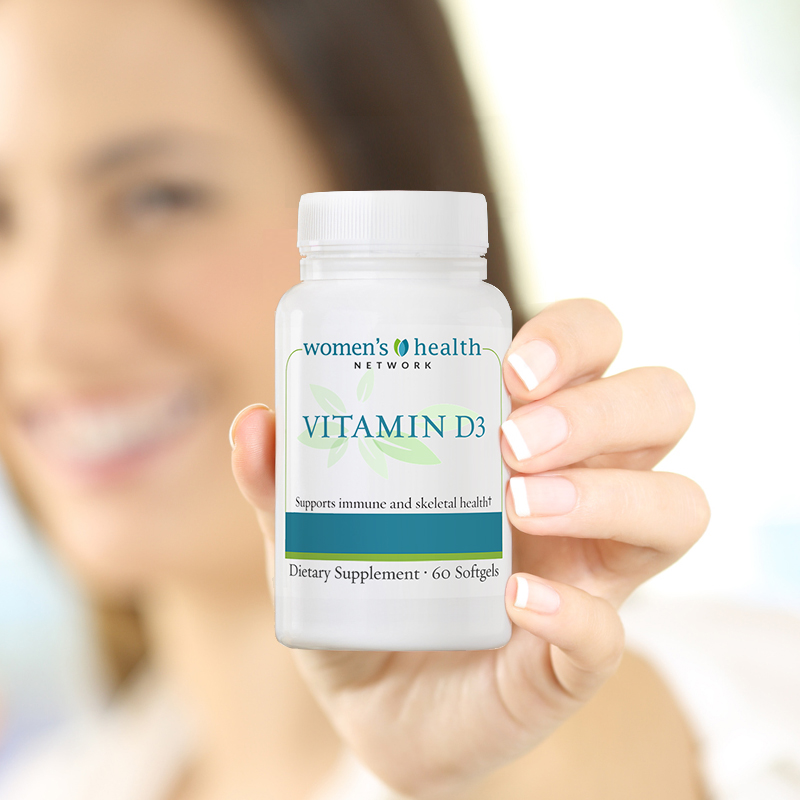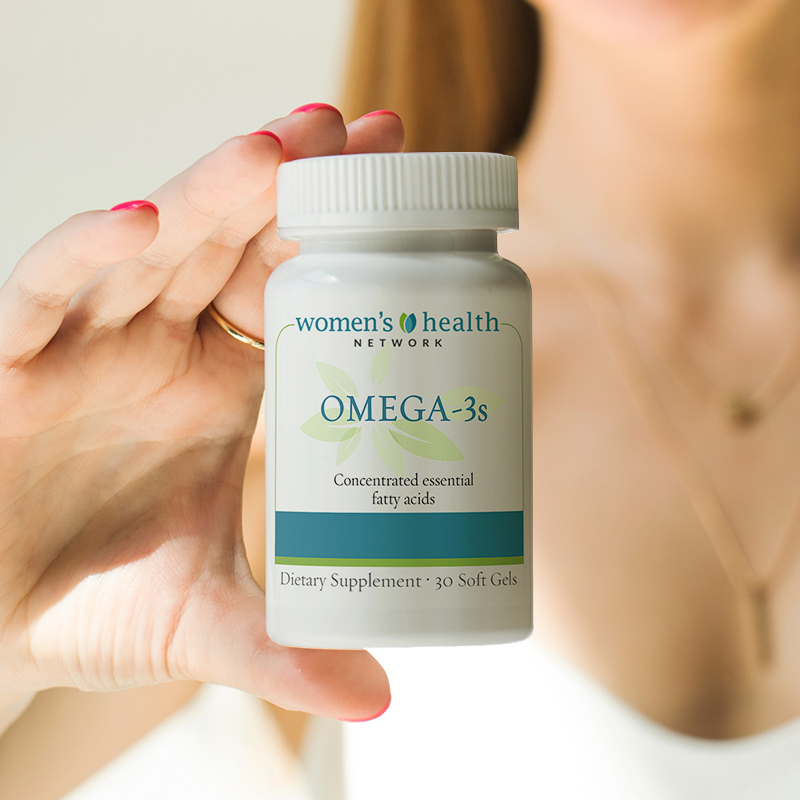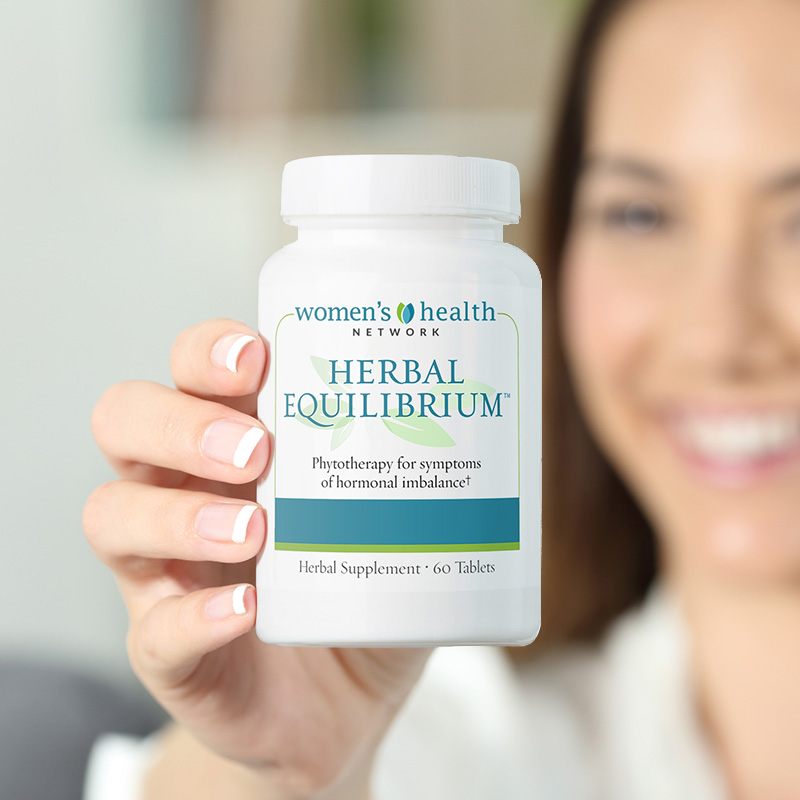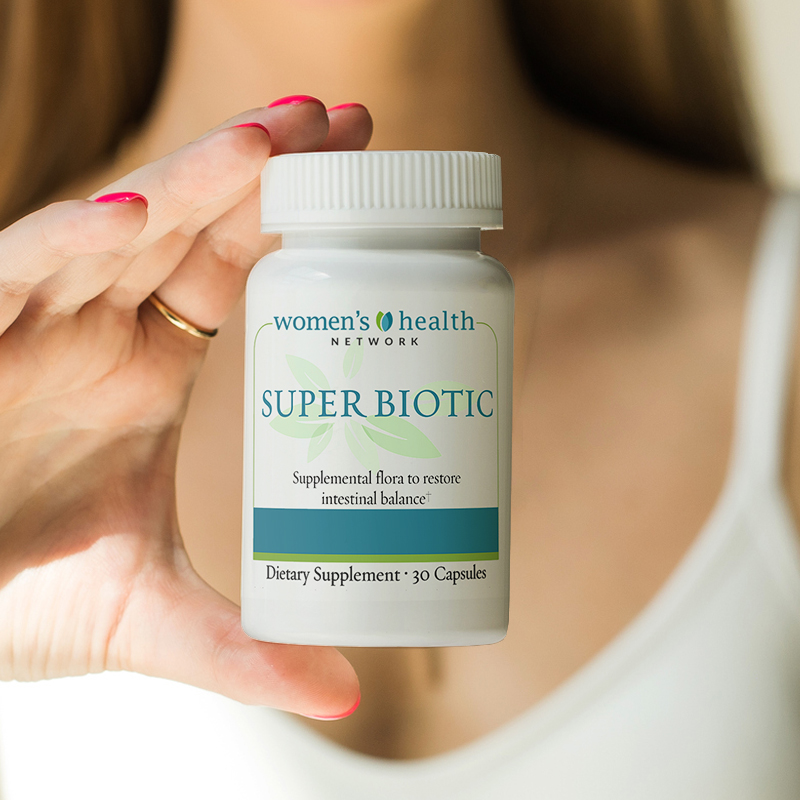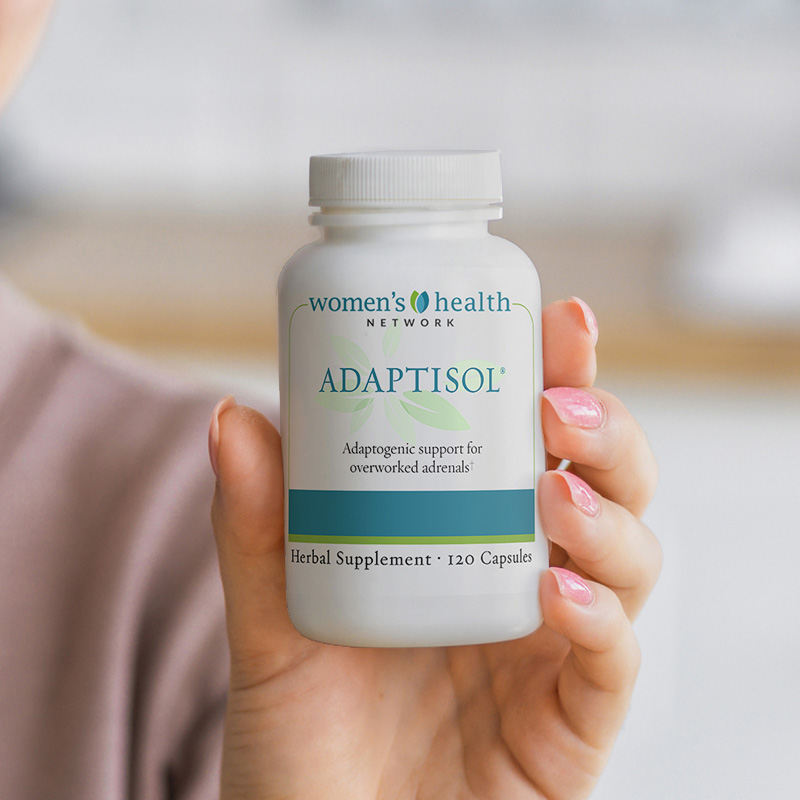Your doctor may not know this, but the science is quite clear
Few people realize many of our current health problems arise from hormonal imbalance. Diabetes, metabolic syndrome, thyroid disease, weight gain, adrenal exhaustion, infertility, PCOS, and more – all these conditions result from chronic hormonal imbalance. And all are more prevalent among women than men. That’s why it’s so vital that every woman understand what she can do to restore and maintain hormonal balance.
Hormones are biochemicals that let the glands, organs and systems of the body communicate their needs to one another. This self-regulatory process directs nearly every process in your body — from digestion to metabolism, stress response to fertility. It isn’t a set-it-and-forget-it system, but requires inputs and adjustments from moment to moment.
Amazingly, most doctors don’t learn much about hormonal balance in medical school (endocrinologists being the exception). But the science of hormonal function has advanced rapidly among biologists – and it proves beyond question that our diet and nutrition are major factors in healthy hormonal balance.
Common symptoms of hormonal imbalances in women include:
- Mood swings and irritability
- Hot flashes
- Fatigue and low energy levels
- Trouble sleeping
- Anxiety
- Weight gain (especially belly fat)
- Low libido
- Breast tenderness and pain
- Brain fog
- Brittle hair
- Dull and dry skin
How can I fix my hormonal imbalance?
Conventional medicine relies on a frustrating band-aid approach to treating women’s hormonal symptoms — the use of prescription synthetic hormones that carry serious health risks is still the norm.
Natural health, however, has a very different understanding of the best solutions for hormonal imbalances in women. It starts with finding the root cause of the imbalance then supporting healthy hormone production with effective diet and lifestyle changes and supplementing with vitamins, minerals, herbs and other nutritional compounds that help restore hormonal balance.
Underlying causes of hormonal imbalances
Hormone imbalances often develop during hormonally active times in a woman’s life: pregnancy and after childbirth (postpartum) and during perimenopause and menopause. When hormone levels rapidly shift during these life transitions, there is simply a greater chance for something to go haywire.
Hormonal imbalances can also be the result of an underlying health condition like PCOS (polycystic ovary syndrome), endometriosis, adrenal fatigue or hypothyroidism (low thyroid). At any point in your life, however, the body’s ability to maintain hormonal balance can be swayed by the foods you eat, the amount of sleep you get, exposure to toxins and how much stress you have in your life.
Can vitamins help hormonal balance?
The endocrine glands require key micronutrients to create hormones and support them in carrying out their important work. If you have low thyroid, for example, then you may have deficiencies in iodine and selenium, two minerals required by the thyroid gland to make and use thyroid hormones.
Herbs and other natural compounds can also provide therapeutic support to correct hormonal imbalances. Ashwagandha, a traditional medicine and ingredient in our Herbal Equilibrium and Adaptisol formulas, is an adaptogenic herb prized for its ability to re-regulate high cortisol, an adrenal imbalance tied to chronic stress and anxiousness. If you are experiencing hormonal symptoms in perimenopause, a sign that estrogen and progesterone are not in the correct ratio, supplementing with herbs including wild yam, black cohosh and red clover extract can help restore balance to these two hormones and relieve perimenopause symptoms. These herbs are all found in our Herbal Equilibrium formula. To increase progesterone levels, you can use a bioidentical USP progesterone cream.
These are just a few examples. There are so many herbs, vitamins and minerals that can help with hormonal imbalances. Described in detail below, the best herb and vitamin supplements for natural hormonal balance include:
- Magnesium
- Vitamin D
- Zinc
- B vitamins
- Iodine
- Ashwagandha
- Rhodiola Rosea
- Probiotics
- CBD oil
Magnesium for hormone balance
It’s not too far of a stretch to call magnesium a miracle mineral for its ability to help correct hormonal imbalances. Here are some of the ways magnesium helps your hormones:
- When you are in a state of chronic stress, over-reactivity in the body’s Hypothalamic-Pituitary-Adrenal (HPA) axis can throw stress hormones into turmoil. Magnesium helps to calm the HPA and return stress hormone production to normal levels, relieving you of anxiety and other stress symptoms. Magnesium is sometimes called the “relaxation molecule” for this effect.
- Magnesium supports balanced production of the body’s main sex hormones (estrogen, progesterone and testosterone) by helping the liver metabolize hormones and excrete harmful estrogen metabolites.
- Magnesium helps to correct thyroid hormone imbalances by boosting the conversion of T4 thyroid hormones to more active T3 forms.
The downside to magnesium? Most women aren’t getting enough. This is partly due to diets lacking in the mineral, but it’s also because the body “dumps” magnesium during times of high or chronic stress. To boost your magnesium intake, add more magnesium-rich foods to your diet. Foods to munch for more magnesium include almonds, cashews and peanuts; spinach; black beans and edamame — all of which offer at least 15% of the daily required amount in a single serving. Many food processing methods remove magnesium, so eat whole foods as much as possible.
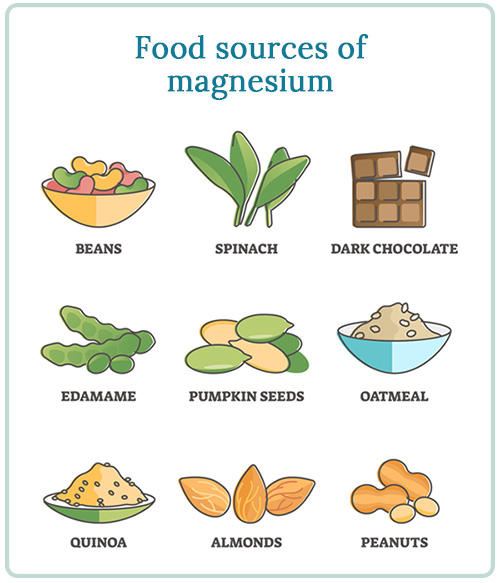
Many women benefit from magnesium supplementation to meet their daily needs for the mineral — about 350 mg. Our Magnesium Bisglycinate is formulated for optimal absorption and is gentle enough to be taken daily. As a big bonus, magnesium boosts your heart and bone health too!
Dark chocolate magnesium
Here’s a sweet tip to get more magnesium: Eat more dark chocolate! Dark chocolate — at least 65% cacao content — contains approximately 64 mg of magnesium per 1-ounce serving. Plus, this tasty treat is high in antioxidants, iron, copper and manganese and contains prebiotic fiber that feeds healthy gut bacteria. The next time you’re craving chocolate, try this chocolatey magnesium-rich treat: Mix a few squares of dark chocolate with a handful of almonds or cashews.
Vitamin D is a hormone
Vitamin D is different from other vitamins because it’s not really a vitamin in the classic sense — it’s actually a hormonal precursor. Vitamin D is used by the body to make calcitriol, a potent hormone capable of signaling over 1,000 different genes to express or suppress themselves, including genes that affect endocrine function and hormonal balance.
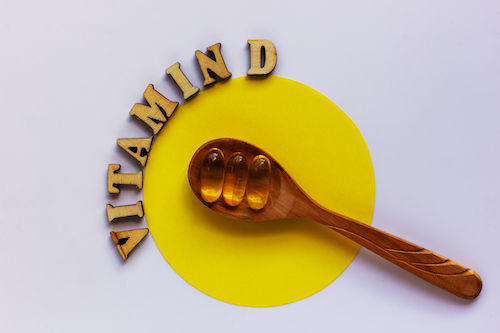
Getting enough Vitamin D is essential for maintaining healthy hormone levels throughout the body. Unfortunately, approximately 42% of American adults are Vitamin D deficient. Experiencing a hormonal imbalance is actually a sign that your Vitamin D levels could be too low. Other symptoms of Vitamin D deficiency include depression, brain fog, fatigue and bone loss.
How to get more Vitamin D? Your skin makes Vitamin D when exposed to direct sunlight, or you can get the vitamin through food or supplementation. Take a walk or garden or sit in your favorite patio chair and soak up the sun for a few minutes — using sun safety precautions, of course! Foods that contain Vitamin D include dairy and plant milks, orange juice fortified with the vitamin, some types of mushrooms, salmon, cod liver oil, beef liver, and sardines.
When you know or suspect that you are deficient, Vitamin D supplementation is an easy way to ensure you are replenishing your levels. A good therapeutic amount is 1000 IU per day. When choosing a supplement, look for Vitamin D3 (Cholecalciferol), which is the more absorbable form of the vitamin. Skip supplements made with D2 and those that do not disclose the type of Vitamin D they contain.
How does Vitamin D help to regulate estrogen?
Researchers have found that low levels of Vitamin D may lead to lower estrogen levels, which can cause mood swings, headaches, depression, hot flashes and more, especially during perimenopause and menopause. Boosting Vitamin D levels helps bring estrogen back into balance.
Do Omega-3 fatty acids balance hormones?
Omega-3 fatty acids are essential nutrients that your body requires, but cannot produce on its own — Omega-3s must come from the diet, through foods like oily fish or flaxseed, or by taking a supplement. Omega-3s are important for brain, bone and heart health, but they also play a critical role in your hormonal health:
- Omega-3s boost sensitivity of receptors sites — proteins typically found on the surface of cells where hormones need to “land” to send their chemical instructions.
- Omega-3s are hormonal precursors needed for the production of estrogen, progesterone and testosterone. Not getting enough Omega-3s is often a factor in developing hot flashes and other menopause discomforts.
- Omega-3s are very effective in helping to tamp down on out of control inflammation in the body. Lowered inflammation supports the body’s ability to make hormones and also helps to protect against autoimmune diseases that can lead to hormonal imbalances, like Hashimoto’s thyroiditis, an autoimmune disease in which the thyroid attacks itself.
- Omega-3s help to regulate and lower inflammation, protecting the body’s ability to make hormones. There is a relationship between inflammation and hormones — inflammation contributes to hormone imbalance, and hormone imbalance contributes to inflammation.
Fish oil hormone balance
To supplement Omega-3 levels, look for a high quality fish oil that has been molecularly distilled, a process that removes any remaining heavy metals, pesticides, solvents, PCBs and other contaminants. Molecularly distilled fish oils also concentrate amounts of critical Omega-3 fatty acids, essential fatty acids, eicosapentaenoic acid (EPA) and docosahexaenoic acid (DHA). Flaxseed oil is a good vegan source for Omega-3s, but be aware that flaxseed oil oxidizes quickly — this is why you see it sold in the refrigerated section of the health food store in dark bottles. Fish oils are more stable, which helps to ensure that you are getting the correct dosage of Omega-3s.
Ashwagandha for hormone balance
Ashwagandha is a traditional remedy for hormonal imbalance that has its roots in Ayurvedic medicine. Modern research has found this herb to be effective in boosting thyroid function and balancing adrenal hormones and androgens. Ashwagandha is adaptogenic, meaning that it has a normalizing effect on hormone levels — helping both excess levels and low levels of hormones return back to normal range. Our Herbal Equilibrium and Adaptisol formulas both contain therapeutic amounts of Ashwagandha.
As it brings hormones back into balance, Ashwagandha helps to counteract depression, increase energy levels and concentration, boost libido, reduce blood pressure and inflammation, and balance blood sugar levels. Recent research has shown promising results for Ashwagahda as a natural treatment for PCOS, female sexual dysfunction and fertility problems.
Probiotics for hormone balance
We’re learning all the time just how important gut health is for overall health, so it’s no surprise to discover that probiotics (beneficial gut flora) are a key ingredient for hormonal balance. As part of supporting a healthy gut microbiome, probiotics help minimize inflammation and optimize metabolism of estrogen, progesterone and testosterone — ensuring balance of these key hormones. Probiotics may also play a role in bringing balance to cortisol and insulin.
How do you get more probiotics?
To boost your intake of probiotics, add probiotic-rich foods to your daily diet.
Foods that are good sources for probiotics include yogurt, kefir, kimchi, fermented sauerkraut and other fermented vegetables, and kombucha.
Taking a probiotic supplement is another easy way to replenish your good gut flora on a daily basis. Look for a high quality probiotics supplement that includes multiple strains of probiotics to help diversify and strengthen your gut health.
B vitamins for hormonal balance
When you have a hormonal imbalance, getting more B vitamins helps to support improved hormone production and healthy hormone levels throughout the body. Here are some of the most beneficial B vitamins for your hormones.
Vitamin B12
Vitamin B12 (cobalamin) is needed for methylation, a process in the liver that breaks down excess hormones and cellular waste. If you don’t get enough B12, methylation may no longer work properly, leading a compound called homocysteine to build up in the blood. Elevated plasma homocysteine levels are tied with estrogen imbalances, and can result in fatigue, mood swings and increased inflammation among other symptoms.
B12 is mostly found in animal products, meaning that vegetarians or vegans may be at risk for B12 deficiency. A high quality multivitamin that contains B12 can bridge any gaps in your diet.
Vitamin B6
Deficiencies in Vitamin B6 are connected to hormonal imbalances in estrogen and progesterone. Supplementing with B6 may be helpful for women in perimenopause and menopause with hormonal symptoms. Studies also show that Vitamin B6 can help alleviate some of the symptoms of premenstrual syndrome (PMS), such as mood changes and irritability. A therapeutic dose of B6 is between 50 to 100 mg daily.
Vitamin B3
Vitamin B3 (niacin) helps to produce both sex and stress (adrenal) hormones and also supports liver function by removing harmful chemicals from the liver. Niacin also helps improve circulation and suppress inflammation. Try to get approximately 16-18 mg of Vitamin B3 daily.
Zinc for hormonal balance
Zinc is required for the conversion of T4 to T3, so a deficiency in the mineral can result in a thyroid hormone imbalance and symptoms of hypothyroidism.
Zinc is an adaptogen for several key hormones, helping to rebalance inadequate or excess cortisol, estrogen and progesterone in women. Zinc also reduces inflammation, providing support for healthy hormone production. Foods rich in zinc include meat, shellfish, chickpeas and other legumes, and pumpkin and sesame seeds.
To supplement your zinc levels, look for a high quality multivitamin that offers zinc in the highly absorbable form of zinc amino acid chelate.
Rhodiola rosea
Remedying an adrenal imbalance starts with regulating cortisol — a necessary step toward restoring proper adrenal function. When your body perceives that it’s under stress, your adrenals start firing off cortisol, your body’s main “fight or flight” stress hormone. Over time, all this excess cortisol taps out the adrenal glands, leaving you feeling fatigued and burned out.
Rhodiola rosea (“golden root”) is an adaptogenic herb that helps to rebalance cortisol and restore energy levels. It also increases mental clarity and offers immune and blood sugar support. Rhodiola is one of the adaptogenic herbs included in our Adaptisol formula for adrenal hormone imbalance.
Hormone balance tips
As part of a natural approach to correcting hormonal imbalance, try adding lifestyle changes that support healthy functioning of your hormones.
Best foods to eat for hormone balance

Give your meals a makeover with these hormone-friendly foods.
Eggs
Cholesterol in eggs is helpful in making all hormones, including progesterone and estrogen. Eggs also contain selenium, an antioxidant mineral that helps to remove free radicals that can cause damage and premature aging to the thyroid gland.
Sea vegetables
Your thyroid simply can’t function without iodine. If you’re deficient, your thyroid lacks a basic building block for producing adequate amounts of thyroid hormones. In the United States, conventional table salt is fortified with iodine to provide the mineral, but women who eat non-iodized sea salt or a reduced salt diet may not be getting enough. To boost your iodine intake, start eating more foods that are naturally rich in iodine, including sea vegetables (kelp, dulse, hijiki, nori) and seafood (clams, shrimp, haddock, oysters, salmon, sardines).
Cherries
If you suffer from insomnia as one of your hormonal issues, snacking on cherries can help because cherries are a natural source of melatonin — the “sleep hormone” released by your pineal gland. As you age, you produce less and less melatonin. Studies have found that cherries have the ability to increase melatonin levels, total sleep time and quality of sleep. Cherries also contain other hormone-balancing nutrients including magnesium and Vitamin C.
Apples
Apples contain a key compound — Calcium D Glucarate — that helps detoxify estrogen from the liver and improve overall estrogen metabolism, needed for hormonal balance. Fiber in apples helps to flush this estrogen out through the colon.
Pomegranates
Pomegranates help by acting as a natural blocker in the body against harmful or excess estrogens. Pomegranates are rich in anthocyanidins — sugarless plant pigments — and flavonoids, which are both important for detoxifying and protecting cells. Pomegranates are high in Vitamin C, and also rich in vitamins A and E and folic acid, which are all important for healthy hormone production.
Flaxseeds
Flaxseeds are rich in lignans — plant-based estrogens that promote hormonal balance of estrogen. Flaxseeds also contain beneficial amounts of Omega-3s and antioxidants, and insoluble fiber to help your body detox excess hormones. To reap benefits from this top food for hormone balance, toss a few handfuls of flaxseeds into your smoothie or sprinkle seeds on a salad.
Avocados
Avocados are packed with beta-sitosterol, a compound that can positively affect blood cholesterol levels and help balance cortisol. Plant sterols in avocados also influence estrogen and progesterone.
Nuts
Rich in poly and monounsaturated fats, nuts aid in hormone production and help to maintain lower cholesterol and insulin levels. The best nuts for hormonal balance are:
- Brazil nuts are a great source of selenium, a nutrient crucial to hormone balance and support for overall thyroid health.
- Walnuts are anti-inflammatory and rich in omega-3 fatty acids, which promote good brain health.
- Almonds provide healthy sources of protein and antioxidants for all over hormonal support.
Exercise for hormonal balance

The best types of exercise for hormonal support are those that energize the body and work muscles at a more moderate level. Exercising at too high an intensity can trigger excess cortisol production, worsening adrenal hormone imbalances. Moderate hormone-balancing exercises to try include:
Walking
As simple as it gets, going for a brisk 20-30 minute walk on most days of the week is a cardio workout that relieves stress, gently works your muscles and lifts your aerobic output. You can walk indoors on a treadmill, but try to get outside. Sunshine’s added Vitamin D boost helps your body maintain hormonal balance.
Yoga
Practicing yoga helps to calm your mind and reduce cortisol. It’s also a great whole body exercise for core muscle toning and balance. Struggling with hot flashes and other menopausal symptoms? Try these yoga for menopause symptom relief poses.
Swimming and water aerobics
If your knees and other joints tend to hurt during exercise, try swimming and water aerobics. The buoyancy of water takes pressure off your joints, giving you the ability to exercise without pain. Plus, the added resistance of water gives your workout more muscle-strengthening power.
Decrease your toxic load

The quantity of chemical compounds in our environment has increased exponentially. Many of the most pervasive chemicals cause estrogen-like effects when they enter the blood stream which can cause or exaggerate hormonal imbalance. But recent studies show that even small changes in food choices and household practices can make a significant difference in creating a healthier environment and that’s good news for your hormones. Here are some steps that can help:
- Ditch the toxic cleaning products and try simple DIY household cleaners made with non-toxic ingredients.
- Try a castor oil pack to support liver detox.
- Limiting your exposure to plastics and chemicals can make a huge difference. We recommend storing food in glass containers, avoiding Teflon and other non-stick cookware, limiting pre-packaged foods, and buying natural products when possible.
Rebalancing your hormones starts now
If you think you may be experiencing a hormone imbalance, take our Hormonal imbalance quiz to help interpret what your symptoms are telling you. If your hormones are imbalanced, the first step is to ramp up the support you give your body. Our effective natural solutions for hormone imbalance include plant-based supplementation and nutrition and lifestyle changes. Together, these steps can resolve the root cause of your symptoms.
Our approach to hormonal imbalance is comprehensive and works with your body to gently restore balance. We’ve developed Hormonal Health Programs that include our exclusive Herbal Equilibrium phytotherapeutic complex to ease symptoms of hormonal imbalance. We’ve worked with tens of thousands of women to help them find the symptom relief they need to get back to their lives and have a little more fun every day. See the difference we can make in your life.
References
- Battacharya, S., et al. 2000. Anxiolytic-antidepressant activity of Withania somnifera glycowithanolides: An experimental study. Phytomedicine, 7 (6), 463–469.
- Berendsen HH. Maturitas. The role of serotonin in hot flushes.2000 Oct 31;36(3):155-64.
- Bhattacharya, S., & Muruganandam, A. 2003. Adaptogenic activity of Withania somnifera: An experimental study using a rat model of chronic stress. Pharmacol. Biochem. Behav., 75, 547–555.
- Dog, T. 2010. Smart Talk on supplements and botanicals: Ginseng and other adaptogenic herbs. Alt. Complement. Ther., 16 (1), 1–4.
- Lepretti M, Martucciello S, Burgos Aceves MA, Putti R, Lionetti L. Omega-3 Fatty Acids and Insulin Resistance: Focus on the Regulation of Mitochondria and Endoplasmic Reticulum Stress. Nutrients. 2018 Mar 14;10(3):350. doi: 10.3390/nu10030350. PMID: 29538286; PMCID: PMC5872768.
- Kargozar R, Azizi H, Salari R. A review of effective herbal medicines in controlling menopausal symptoms. Electron Physician. 2017 Nov 25;9(11):5826-5833. doi: 10.19082/5826. PMID: 29403626; PMCID: PMC5783135.
- Muscaritoli M. The Impact of Nutrients on Mental Health and Well-Being: Insights From the Literature. Front Nutr. 2021 Mar 8;8:656290. doi: 10.3389/fnut.2021.656290. PMID: 33763446; PMCID: PMC7982519.
- Nemeth M, Eisenschenk I, Engelmann A, Esser FM, Kokodynska M, Szewczak VF, Barnreiter E, Wallner B, Millesi E. Flaxseed oil as omega-3 polyunsaturated fatty acid source modulates cortisol concentrations and social dominance in male and female guinea pigs. Horm Behav. 2021 Aug;134:105025. doi: 10.1016/j.yhbeh.2021.105025. Epub 2021 Jul 7. PMID: 34242874.
- Shams, T., et al. 2010. Efficacy of black cohosh-containing preparations on menopausal symptoms: A meta-analysis. Alt. Ther., 16 (1), 36–44.







